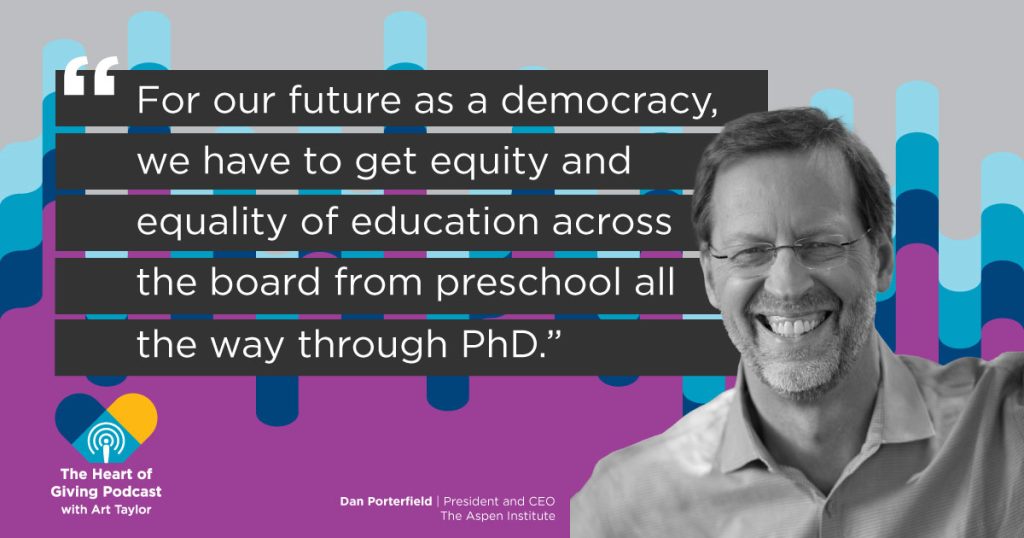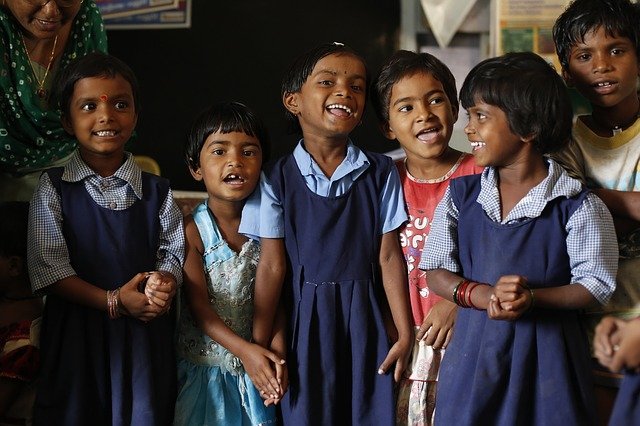Heart of Giving Blog: Interview with Dan Porterfield

From remote learning to financial aid, education has been top of mind for many in the philanthropic space. How can higher learning be a force for innovative good without contributing to growing inequity in the United States and beyond? Formerly President of Franklin & Marshall College and Senior Vice President of Strategic Development at Georgetown University, Dan Porterfield spent decades connecting education and social justice. Now President and CEO of the Aspen Institute, he oversees programs that promote job development, educational reform, and partnerships between businesses, government agencies, and schools. Heart of Giving’s two-part interview tracks three significant aspects of his varied and impactful career, as well as the enduring optimism that has defined it.
Making Meaningful Tradeoffs: Recalling his own journey from a working-class childhood in Baltimore to a Rhodes Scholarship, Porterfield appreciates how education can empower individuals and families from underserved communities. As an academic administrator, he prioritized talent strategies that allocated funds to financial aid, drawing low-income students to prestigious institutions. But in an era of COVID and tight budgets, assisting the disadvantaged can pose a conundrum for the educational sector and its stakeholders. Should they restructure debt, promote enrollment, or perhaps adjust their spending models?
Rethinking College and University Ratings: Because of benchmarks that promote high tuition and the SAT test (itself a marker of student inequality), Porterfield remains skeptical of popular college and university rankings. Their rigid criteria can perpetuate a deeply conservative mindset among administrators, especially since spending changes can lower a school’s rating and reputational cachet. Are there new ways to incentivize innovation in educational institutions?
Creating Dialogue: In a time of deep racial and political divides, starting new conversations has never seemed more crucial—or more challenging. The Aspen Institute sponsors initiatives that promote effective civic participation. The Citizenship and American Identity Program encourages discussions about a shared sense of national values through public engagement. Similarly, the Better Arguments Project helps communities to have productive debates that incorporate and respect multiple points of view. Their efforts bring together government, education, and nonprofit sectors to build bridges in a compelling way. How can other organizations respond to this polarized turning point in American history?
To learn more about education and political collaboration, listen to the two-part interview with Dan Porterfield on the Heart of Giving Podcast here and here.
This article was composed by Emily Hershman.


